Are you facing challenges in enforcing court orders? Whether it's related to child support, property division, or compliance with custody arrangements, the process can often feel overwhelming and complicated. But don't worryâyou're not alone in this journey, and there are effective ways to ensure that court mandates are honored. Join us as we explore practical tips and strategies for enforcing court orders, and discover how you can take action today!
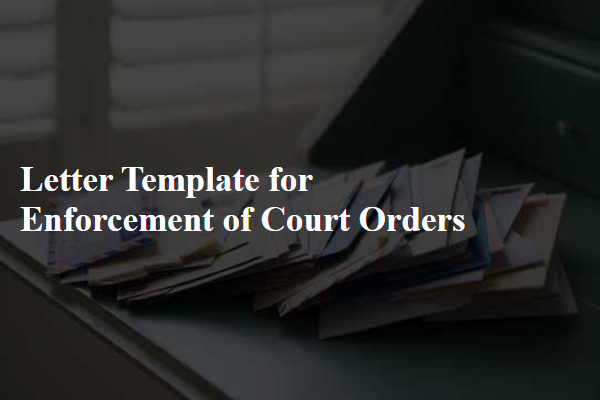
Clear Identification of Court Order
Clear identification of court orders is crucial in legal enforcement processes, ensuring compliance and clarity. Specifics of the order, such as case number (e.g., 2023CV1234), date issued (e.g., January 15, 2023), and jurisdiction (e.g., Cook County Circuit Court), must be accurately documented. Parties involved (e.g., Plaintiff: John Doe, Defendant: Jane Smith) should be distinctly stated. The terms of the order (e.g., "payment of $10,000 by February 1, 2023") need to be articulated precisely to prevent misunderstandings. Including a reference to relevant statutes (e.g., Illinois Compiled Statutes, 735 ILCS 5/12-1101) can enhance the legal foundation of the enforcement request. Clear identification aids law enforcement agencies, attorneys, and the parties in understanding obligations outlined by the court.
Specific Compliance Requirements
Enforcement of court orders involves detailed compliance requirements that vary based on jurisdiction and specific case circumstances. Compliance often mandates individuals or organizations to adhere to stipulated conditions set forth by a judge, typically outlined in legal documents like restraining orders or settlement agreements. Violations can lead to consequences, including monetary fines or imprisonment. For example, in domestic violence cases, courts may require abusers to attend counseling sessions, maintain a specific distance from victims, or surrender firearms. Entities involved must ensure legal documents, such as affidavits or motion papers, are meticulously completed and submitted to the court for validation. Cooperation with law enforcement agencies may also be emphasized, particularly regarding orders of protection, to ensure victim safety and enforceability. Regular monitoring and prompt reporting of non-compliance to the court are crucial to uphold legal mandates and protect the rights of all parties involved.
Deadline and Timeframe for Compliance
The enforcement of court orders requires a specific timeframe for compliance to ensure adherence to legal mandates. Court orders, such as those issued by a judge in civil cases or family law cases, typically provide definitive deadlines, often ranging from a few days to several weeks, depending on the complexity of the compliance required. Failure to comply within this timeframe may result in legal repercussions, including potential sanctions or contempt proceedings. For instance, in court-ordered child support cases, non-compliance can lead to severe penalties, including wage garnishment or loss of custody rights. Clear communication of these deadlines is crucial to maintain the integrity of the judicial process and uphold the rights of all parties involved. Enforcement mechanisms also include the involvement of legal authorities or law enforcement agencies to ensure compliance with the court's directives.
Consequences of Non-Compliance
Non-compliance with court orders can lead to severe legal consequences for individuals in jurisdictions such as California. A party failing to adhere to a court ruling may face penalties including contempt of court, which can result in fines, imprisonment (up to six months), or both. The court may issue enforcement actions, such as wage garnishment or property liens, compelling compliance. Additionally, repeated non-compliance can damage the party's credibility in future court proceedings or lead to unfavorable judgments. Legal repercussions not only affect personal circumstances but can also influence business operations, affecting future contracts and relationships. It is crucial to understand that maintaining compliance with court orders upholds the integrity of the judicial system.
Contact Information for Queries and Correspondence
Enforcement of court orders necessitates precise communication regarding contact details for queries and correspondence. Court officials, such as clerks, provide essential contact information, including phone numbers, email addresses, and office locations for follow-up questions. Typically, district courts located in major cities, such as Los Angeles or New York, have dedicated departments handling enforcement inquiries. Timely correspondence is critical, as certain jurisdictions impose strict deadlines, often within 30 days, for responding to enforcement requests or for compliance with orders. Ensuring accurate and up-to-date contact information facilitates effective resolution of legal matters, maintaining the integrity of the judicial process.

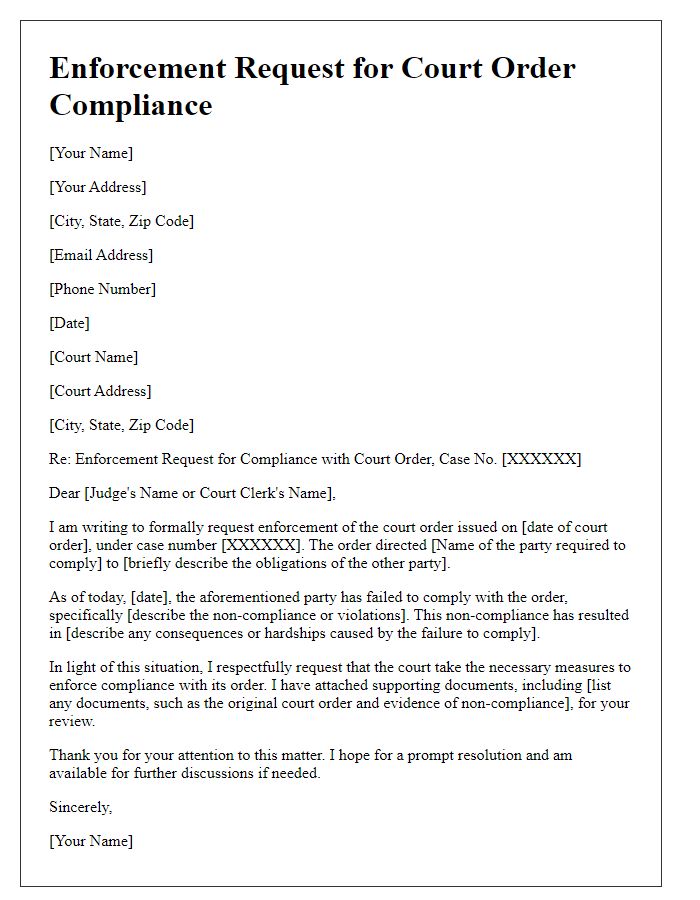
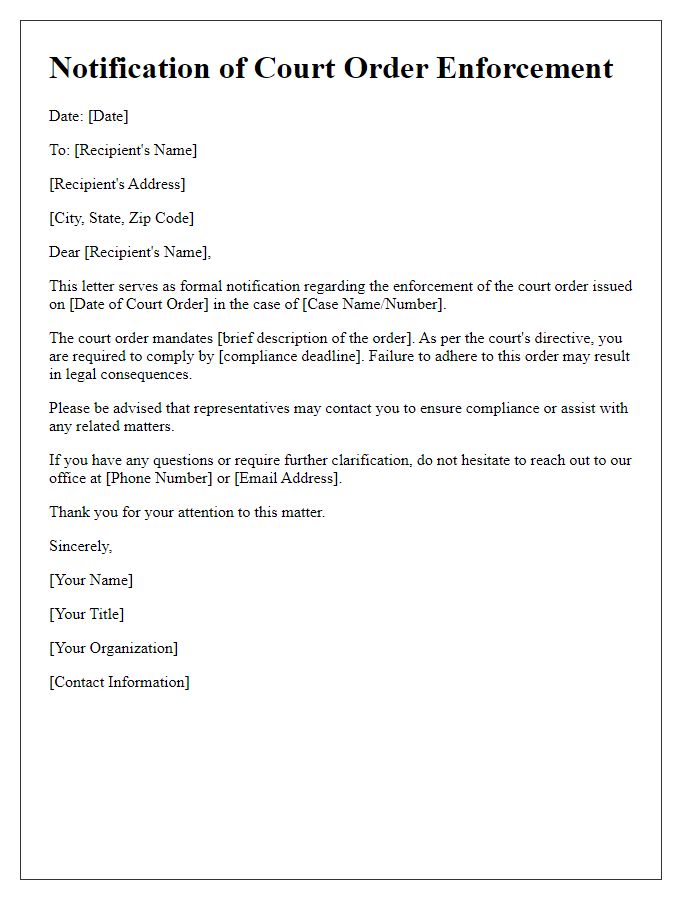
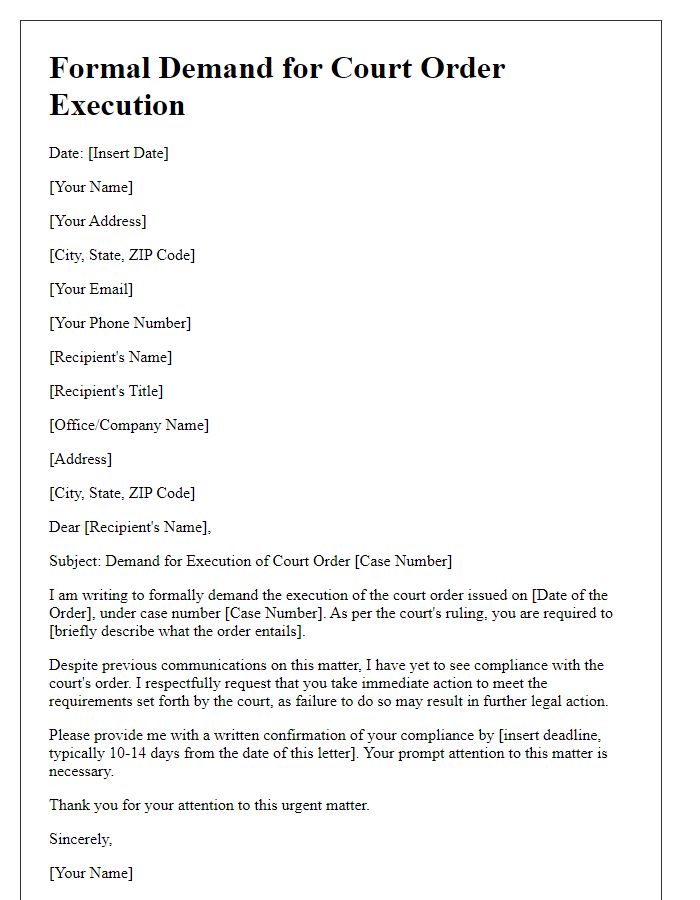
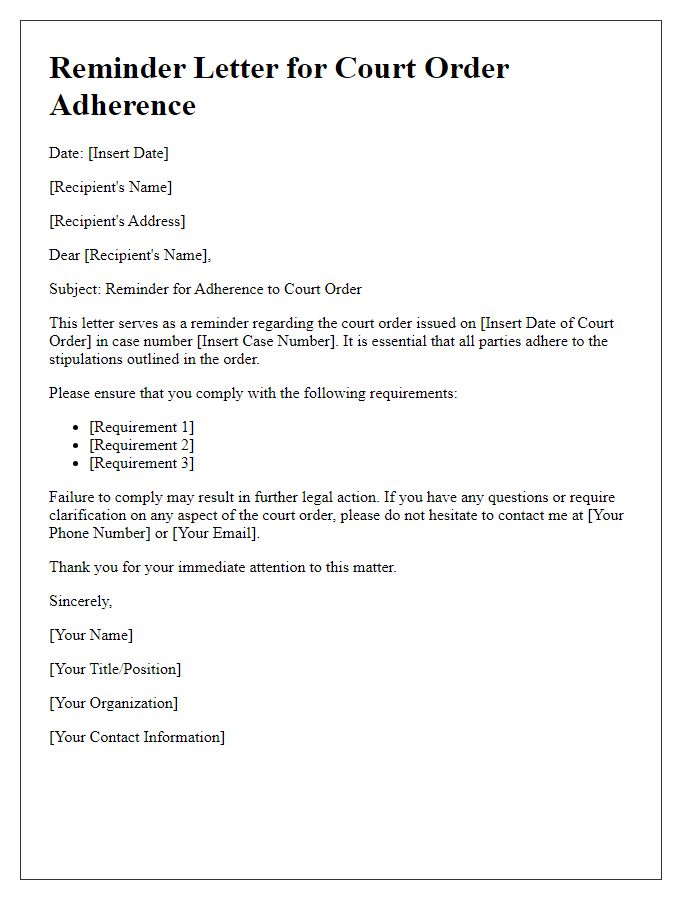
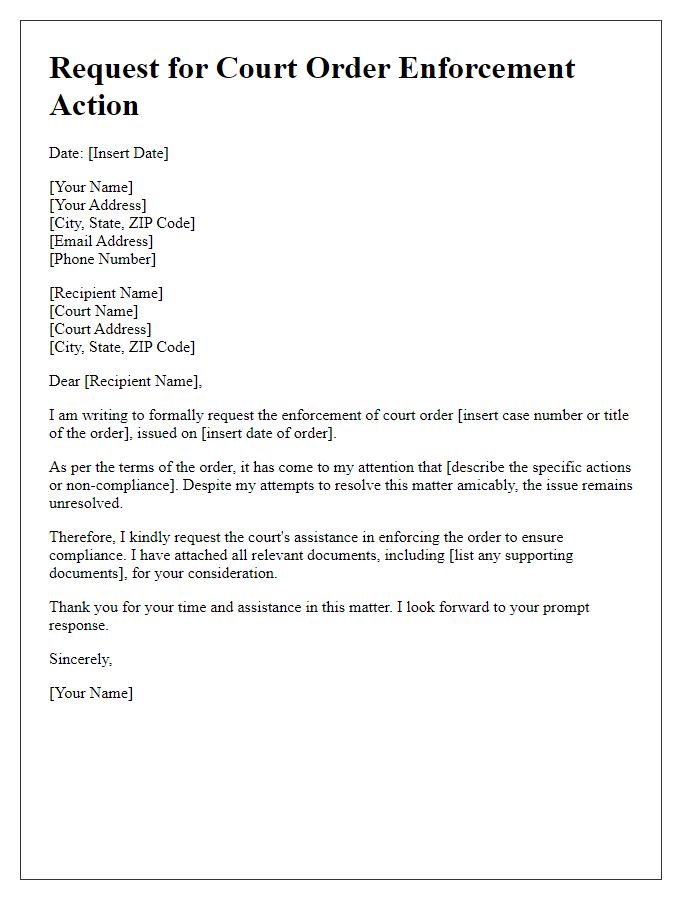
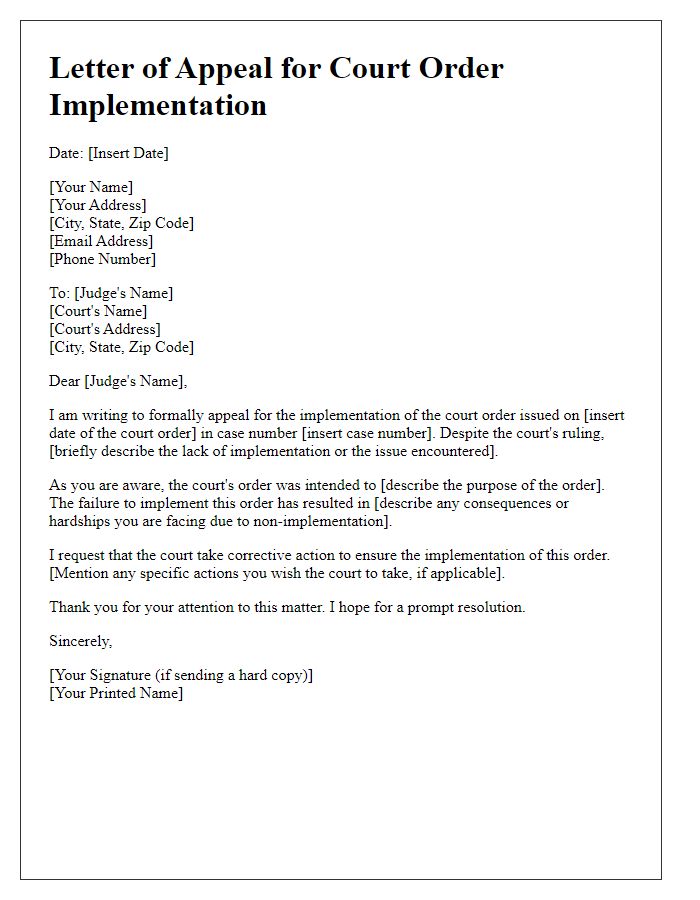
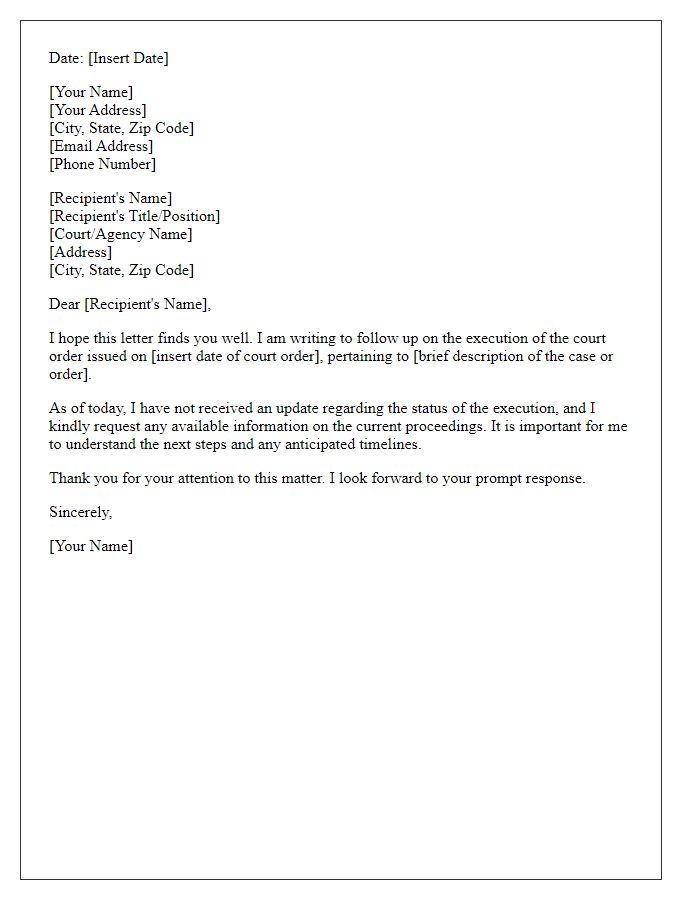
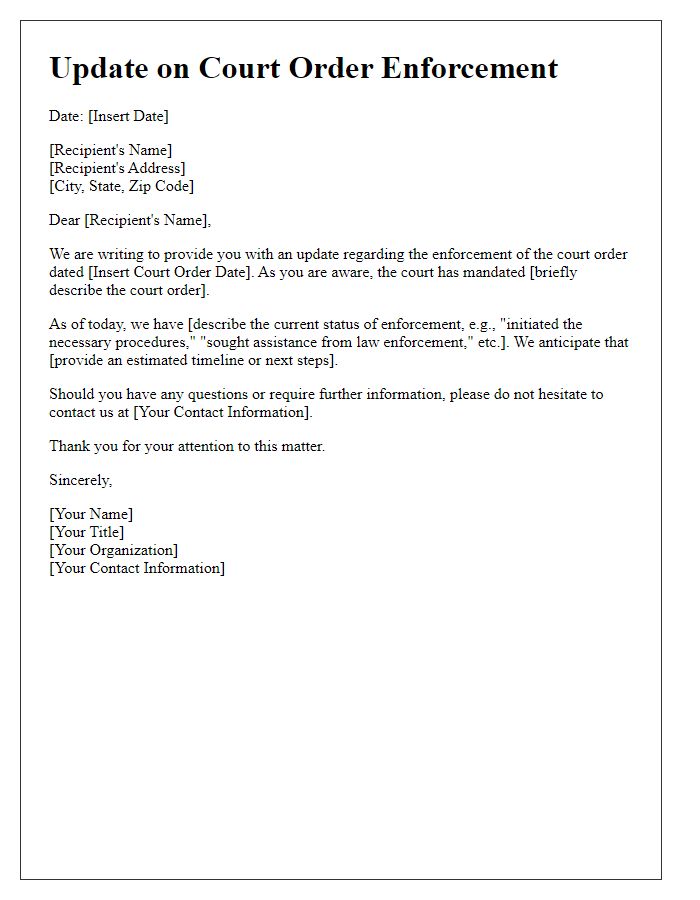
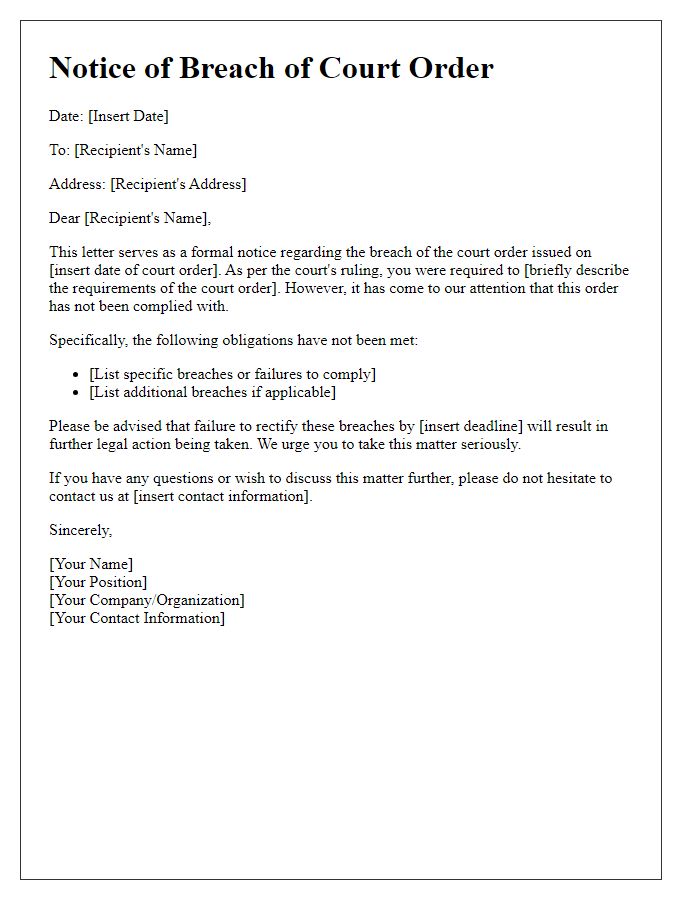
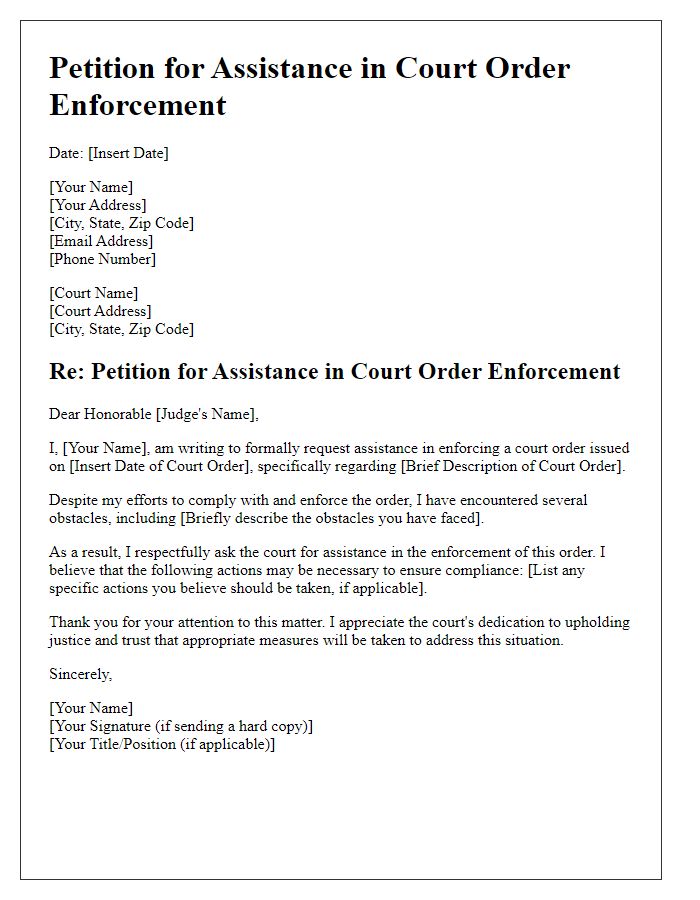


Comments